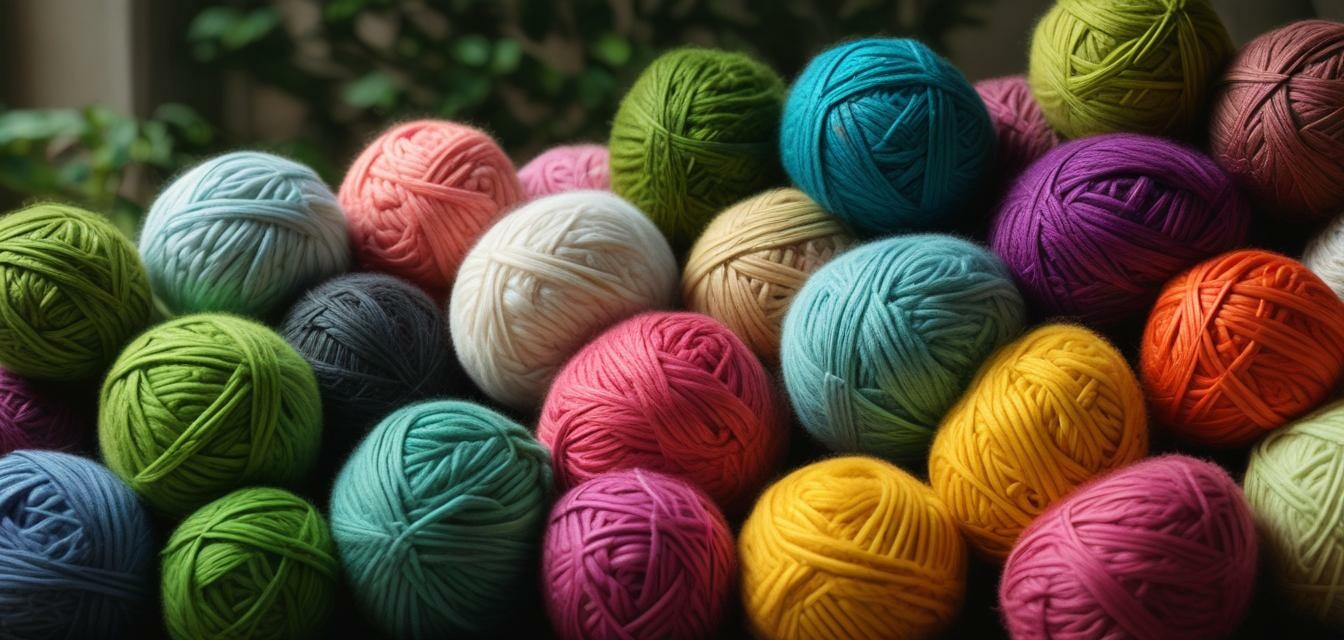
The growth of eco-conscious knitting brands
In recent years, the knitting community has seen a remarkable shift toward eco-friendly practices. From sustainable materials to ethical production methods, eco-conscious knitting brands are leading the way in promoting a greener future for the crafting world. This article will delve into the reasons behind this trend, the notable brands at the forefront, and what this means for knitters everywhere.
Key Takeaways
- The rise of eco-friendly materials is influencing knitting practices.
- Many brands focus on ethical sourcing and sustainability.
- Consumers are becoming more aware of their choices.
- Innovation in eco-conscious products is on the rise.
Understanding the importance of eco-conscious knitting
As awareness around environmental issues grows, many crafters are seeking ways to contribute positively. This trend has led to an increase in eco-conscious knitting brands that emphasize sustainability. Here are some key factors driving this change:
- Consumer Awareness: With information readily available, consumers are more informed about the environmental impact of their choices.
- Sustainable Practices: Brands are adopting more sustainable methods, which often attract a dedicated customer base.
- Community Engagement: Knitting communities are increasingly advocating for sustainable practices and sharing knowledge about eco-friendly options.
What makes a knitting brand eco-conscious?
Not all knitting brands are created equal. Here are the primary criteria that define eco-conscious knitting brands:
- Sustainable Materials: Many of these brands use organic cotton, bamboo, hemp, or recycled fibers.
- Ethical Production Practices: Fair wages, safe working conditions, and a minimal carbon footprint are essential.
- Transparency: Eco-conscious brands often provide insight into their sourcing and manufacturing processes.
Leading the charge: Notable eco-conscious knitting brands
Several brands have gained recognition for their commitment to sustainability. Here’s a table comparing some of the leaders in the eco-conscious knitting sector:
| Brand Name | Main Focus | Sustainable Practices |
|---|---|---|
| Brand A | Organic yarns | 100% organic, no pesticides |
| Brand B | Recycled materials | Yarns made from recycled fibers |
| Brand C | Ethical manufacturing | Fair trade practices and local sourcing |
| Brand D | Natural dyes | Using plant-based dyes |
The future of eco-conscious knitting
With the rise of eco-conscious brands, the future of knitting looks promising. Here’s how this trend is expected to evolve:
- Innovation: As technology improves, expect new sustainable fibers and materials to enter the knitting world.
- Community Focus: Brands will likely engage more with communities to foster awareness and education.
- Collaboration: We may see collaborations between brands and local artisans to create unique, sustainable products.
Why should you consider eco-conscious brands?
Choosing to support eco-conscious knitting brands comes with numerous benefits:
- Quality Products: Sustainable brands often prioritize quality over quantity, offering longer-lasting yarns.
- Supporting Ethical Practices: You contribute to fair wages and ethical labor practices.
- Environmental Impact: Your choices directly contribute to reducing environmental harm.
Pros
- Supports sustainable practices.
- Encourages ethical labor conditions.
- Increases awareness of ecological impacts.
- Presents quality yarns that are better for the planet.
Cons
- Higher prices compared to non-eco-friendly options.
- Limited availability in local stores.
- Inconsistent quality among brands.
Your Next Steps
For those interested in exploring the world of eco-friendly knitting brands, here are some suggestions:
- Visit the Yarns and Fibres category to find sustainable options.
- Browse Knitting Kits that prioritize eco-friendly materials.
- Check out our Buying Guides for tips on selecting sustainable products.
Conclusion
The growth of eco-conscious knitting brands signifies a shift toward more sustainable crafting practices. As consumers continue to prioritize ethical choices, the knitting industry will likely adapt, leading to an even more vibrant and responsible community. By supporting eco-friendly brands, knitters can not only enjoy high-quality materials but also contribute to a more sustainable future.



